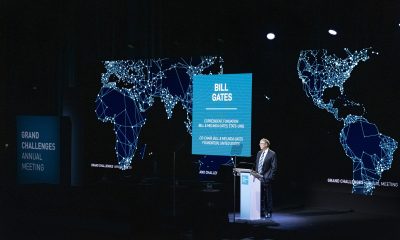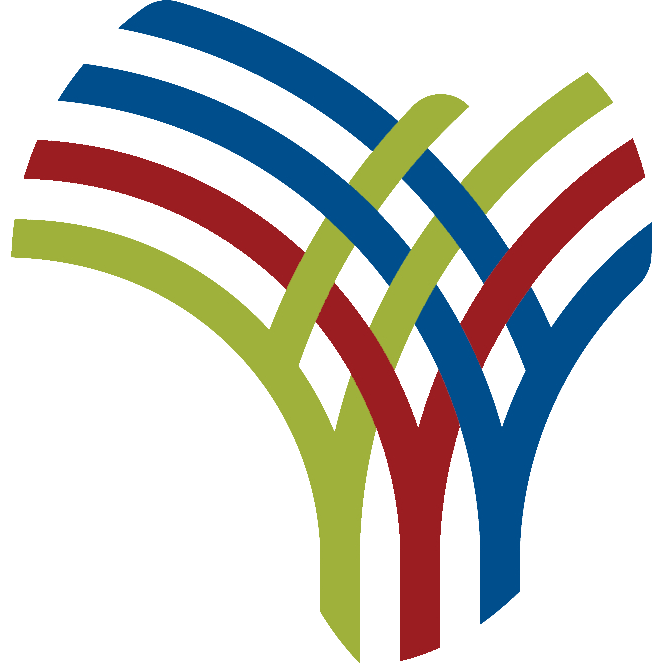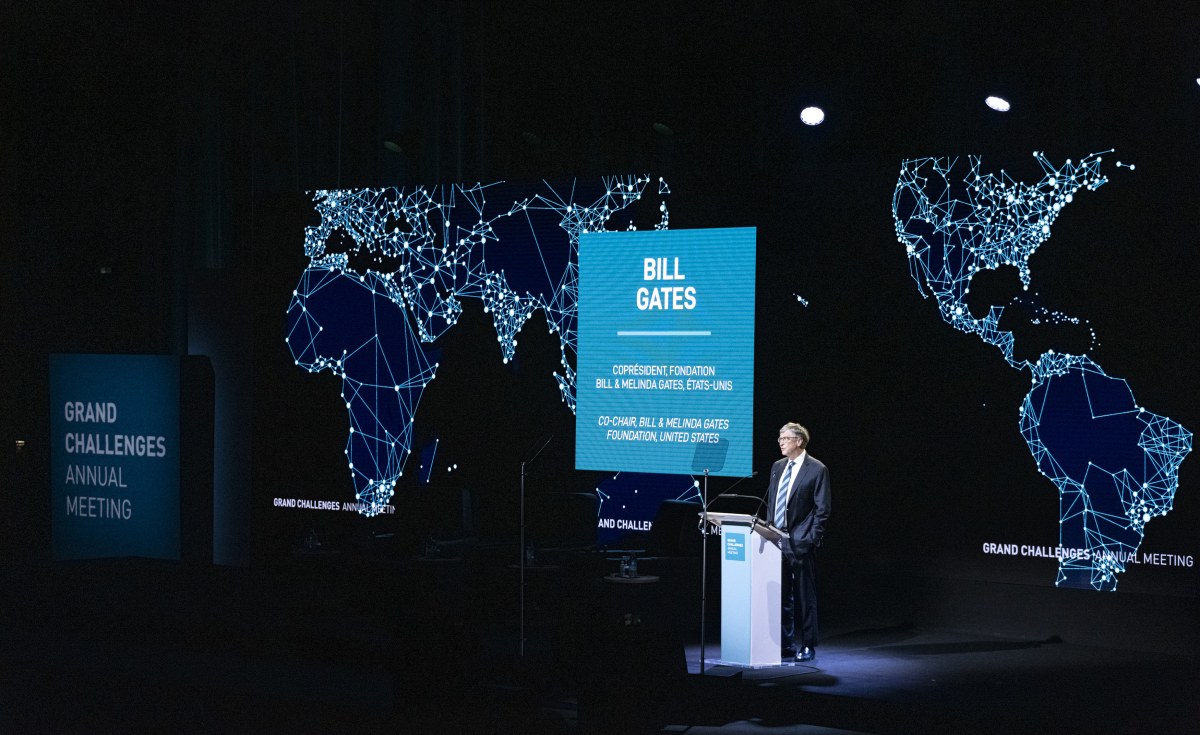At 2025 Goalkeepers event, Gates lays out roadmap for saving millions more children’s lives by 2045 if governments stretch every dollar and scale a pipeline of affordable, lifesaving innovations
Announces new pledge to the Global Fund 2026-2028 replenishment to prevent deaths from AIDS, TB, and malaria
Honors President of the Government of Spain with 2025 Global Goalkeeper Award and 10 champions for their ingenuity and resilience, and for offering hope, solutions in the face of steep funding cuts
NEW YORK (September 22, 2025) – At its 2025 Goalkeepers event, Gates Foundation Chair Bill Gates stood before an audience of more than 1,000 global government, community, philanthropy, and private-sector leaders and issued a stark but hopeful call to world leaders: save millions of children’s lives and make some of the deadliest diseases history by 2045.
Keep up with the latest headlines on WhatsApp | LinkedIn
“Humanity is at a crossroads. With millions of children’s lives on the line, global leaders have a once-in-a-generation chance to do something extraordinary,” said Gates. “The choices they make now—whether to go forward with proposed steep cuts to health aid or to give the world’s children the chance they deserve to live a healthy life—will determine what kind of future we leave the next generation.”
This year, donor countries dealing with domestic challenges, high debt levels, and aging populations made dramatic funding cuts to global development assistance for health (DAH). According to a recent study by the Institute for Health Metrics and Evaluation (IHME), global DAH fell by 21% between 2024 and 2025, and is now at a 15-year low. With key global health funding decisions expected before the end of the year, total funding levels could rise. However, if the current cuts hold, they threaten decades of progress that saw child mortality cut in half since 2000—from 10 million children to less than 5 million children a year—one of humanity’s greatest achievements.
During the annual event, which this year focused on reigniting a shared commitment to saving children’s lives, Gates announced his foundation’s pledge of $912 million over three years to the Global Fund to Fight AIDS, Tuberculosis and Malaria’s 2026-2028 replenishment. The Global Fund is one of the most effective lifesaving initiatives of the 21st century. Its fundraising replenishment cycle ends this November, underscoring the urgency for governments to make pivotal decisions in the coming weeks and months for the lives of millions of people.
“What’s happening to the health of the world’s children is worse than most people realize, but our long-term prospects are better than most people can imagine,” said Gates. “I don’t expect most governments to suddenly restore foreign aid to historic levels, but I am an optimist, and I believe governments can and will do what’s needed to save as many children as possible,” said Gates.
With shrinking global health budgets as the backdrop, the Goalkeepers event highlighted the people, science and innovations, and policies that are accelerating solutions for how leaders can do more with less.
A Roadmap to a Healthier Future
“We have a roadmap for saving millions of children and making some of the deadliest childhood diseases history by 2045,” Gates asserted. “I’m urging world leaders to invest in the health of all people, especially children, to deliver this future.”
Results from work by the Gates Foundation and the IHME indicate that sustaining global investments in child health and scaling lifesaving innovations could cut child deaths in half again over the next 20 years.
The roadmap includes:
A New Three-Year Commitment to the Global Fund
Since 2002, the Global Fund has saved more than 70 million lives; reduced deaths from AIDS, TB, and malaria by more than 60%; and strengthened global health security. Each dollar invested in the Global Fund delivers an estimated $19 in health and economic returns.
The foundation’s new pledge brings its total commitments to the Global Fund to $4.9 billion since 2002, making it one of the foundation’s largest investments. The pledge aims to galvanize governments, philanthropists, and the private sector to come to the table with significant investments for the fund’s Eighth Replenishment, which is co-hosted by South Africa and the United Kingdom. With millions of lives on the line, the level of investment in the Global Fund over the next three years will determine whether the world saves millions of lives; curbs HIV, TB, and malaria; and bolsters economies and global health security.
“An entire generation is alive today thanks to the world’s generosity, smart investments, and the hard work of governments and Global Fund partners,” Gates said. “Now, we must go further so the next generation grows up in a world where no child dies from preventable causes.”
Celebrating Goalkeeper Award and Champions
In recognition of his continued commitment to advance the Global Goals, the foundation announced President of the Government of Spain Pedro Sánchez as the winner of its 2025 Global Goalkeeper Award. Under Prime Minister Sánchez’s leadership, Spain increased contributions to the Global Fund this year by nearly 12% and to Gavi by 30%, expanded official development assistance (ODA), and hosted the landmark International Conference on Financing for Development in June 2025.
The event also honored Goalkeepers Champions—experts, innovators, and advocates driving progress in child survival worldwide. They include:
“We Can’t Stop at Almost”
The Goalkeepers event was co-hosted by singer, songwriter, and composer Jon Batiste, who returned as musical curator for the second year with the PS22 elementary school choir, and actress and director Olivia Wilde. Together, they urged the audience to remember that while the world has made progress, “we can’t stop at almost,” which was the event’s theme.
Community champions, scientists, health workers, faith leaders, and activists from Bangladesh, Indonesia, Kenya, Madagascar, Nigeria, Senegal, South Africa, Uganda, and the United States shared powerful stories of resilience and innovation. Several showcased breakthrough technologies already saving lives and moving the world closer to eradicating deadly diseases.
Get the latest in African news delivered straight to your inbox
By submitting above, you agree to our privacy policy.
Almost finished…
We need to confirm your email address.
To complete the process, please follow the instructions in the email we just sent you.
There was a problem processing your submission. Please try again later.
“Every year, Goalkeepers unites changemakers to inspire and push one another forward,” said Dawda Jobarteh, deputy director of the foundation’s Goalkeepers campaign. “Together, we can reimagine a future without preventable child deaths and unlock the next wave of breakthroughs for the world’s children.”
Event session presenters included Rick Warren, pastor and author; El Hadji Mansour Sy, co-president of World Council of Religions for Peace; Ingrid Silva, ballet dancer and activist; Krista Tippett, journalist and author; Latif Nasser, co-host of “Radiolab”; and Budi Gunadi Sadikin, Indonesia’s minister of health.
Looking Ahead
Later this year, Goalkeepers will expand to the Middle East for the first time, convening leaders, innovators, and changemakers from across the region and beyond in Abu Dhabi on December 8.
Ahead of that, the foundation will release its 2025 Goalkeepers Report, focusing on the impact that leaders’ choices between now and the end of the year will have on saving children’s lives.
Earlier this year, Gates made a historic announcement that he would give away virtually all of his wealth to the foundation to advance progress on saving and improving lives. He also announced the foundation would spend $200 billion over the next 20 years, working with its partners to make as much progress as possible towards three primary goals: end preventable deaths of moms and babies; ensure the next generation grows up without having to suffer from deadly infectious diseases; and lift millions of people out of poverty, putting them on a path to prosperity. At the end of the 20-year period, the foundation will sunset its operations.
AllAfrica publishes around 500 reports a day from more than 110 news organizations and over 500 other institutions and individuals, representing a diversity of positions on every topic. We publish news and views ranging from vigorous opponents of governments to government publications and spokespersons. Publishers named above each report are responsible for their own content, which AllAfrica does not have the legal right to edit or correct.
Articles and commentaries that identify allAfrica.com as the publisher are produced or commissioned by AllAfrica. To address comments or complaints, please Contact us.
AllAfrica is a voice of, by and about Africa – aggregating, producing and distributing 500 news and information items daily from over 110 African news organizations and our own reporters to an African and global public. We operate from Cape Town, Dakar, Abuja, Johannesburg, Nairobi and Washington DC.
Get the latest in African news delivered straight to your inbox
By submitting above, you agree to our privacy policy.
Almost finished…
We need to confirm your email address.
To complete the process, please follow the instructions in the email we just sent you.
There was a problem processing your submission. Please try again later.
source

 Local6 days ago
Local6 days ago
 Local6 days ago
Local6 days ago
 Local5 days ago
Local5 days ago
 Local4 days ago
Local4 days ago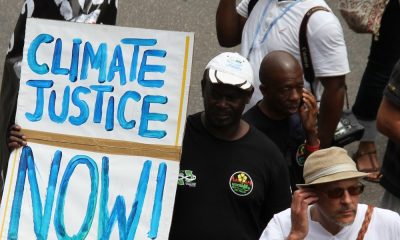
 Local2 days ago
Local2 days ago
 Sports5 days ago
Sports5 days ago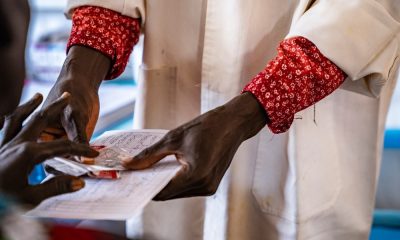
 Local4 days ago
Local4 days ago
 Local3 days ago
Local3 days ago






